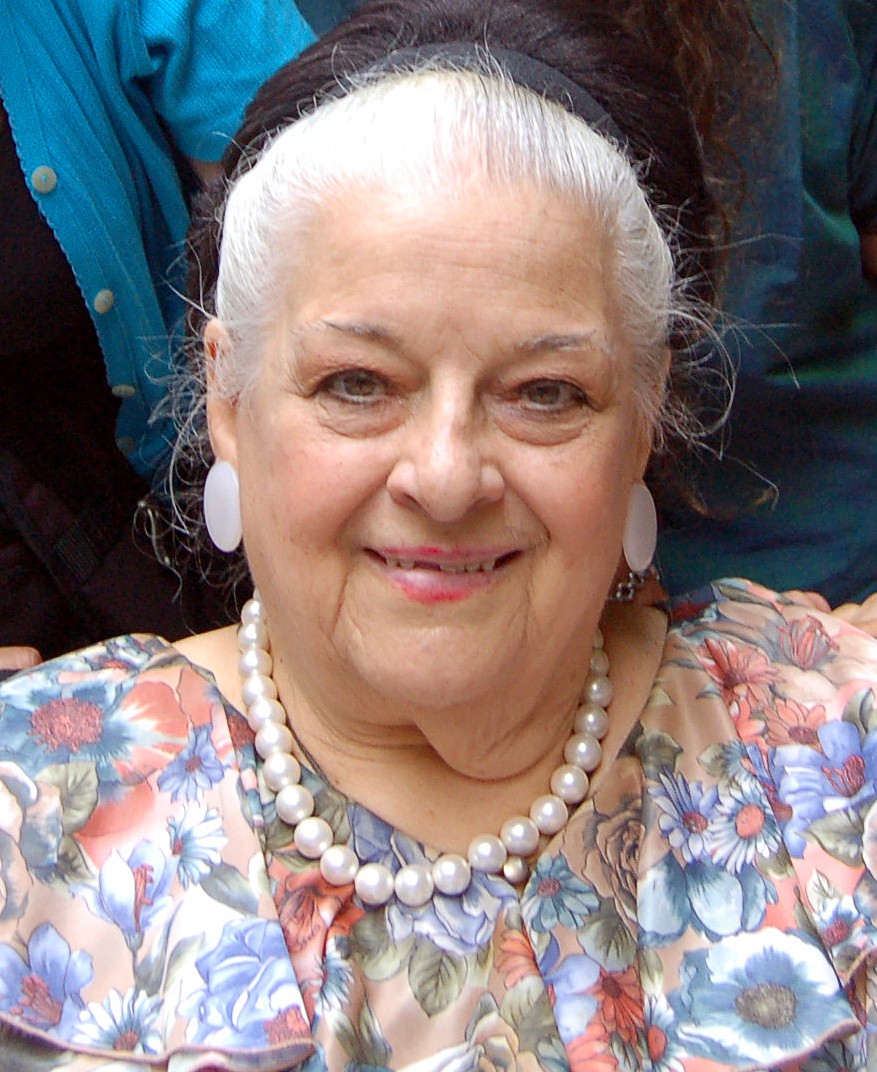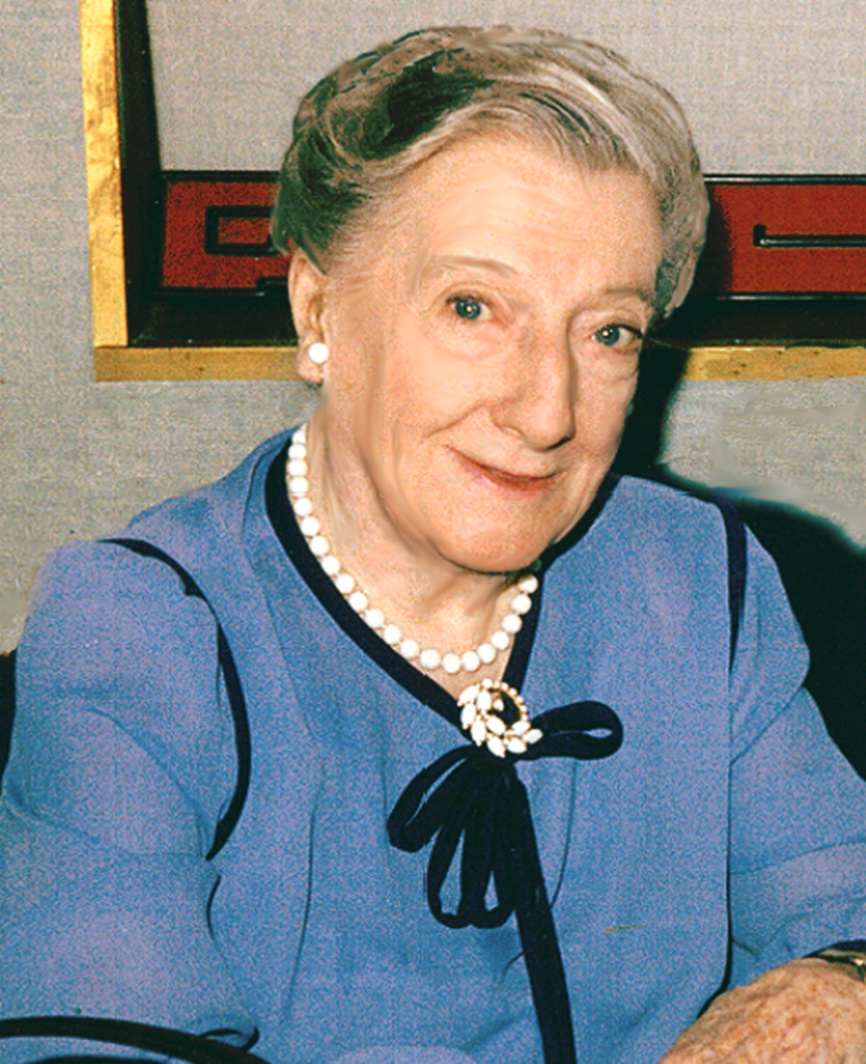History of the Organization
Dushka Howarth was the founder of the Gurdjieff Heritage Society. She saw a need to preserve the materials that comprise the Gurdjieff teaching. She began by gathering original notes, photographs, music, and descriptions of Movements from around the world in order to compile definitive instructions for as many Movements as possible. The crown jewels of her collection was comprised of her mother’s (Jessmin Howarth) Movements notes.
Dushka and Jessmin Howarth
Musician, singer, teacher of Gurdjieff Movements, Dushka Howarth devoted much of her life to preserving the heritage of her parents, George Ivanovich Gurdjieff, the extraordinary spiritual teacher and founder of the “Work,” and Jessmin Howarth, the dancer and musician, who was entrusted by Gurdjieff to teach his Movements (sacred dances and exercises for spiritual development) in America.
Cynthia Ann (Dushka) Howarth was born in 1924 in Philadelphia. She attended college in Colorado to study painting and hoping to become an artist. She and her mother, Jessmin, moved to New York City at the outbreak of World War II, where she transferred to Barnard College and graduated with a BA in English Literature.
Dushka’s first career was as a publicist in the early Harlem jazz scene for such entertainers as Nat King Cole and Dick Hymen, with a stint in Paris as a special events manager, dba Howarth Services. She hosted numerous VIPs including former President Harry Truman, filmmaker Richard Kaplan, Sheik Bakir El Suhail, writer William Segal, and the King and Queen of Greece. She became the first American licensed as a Paris tour guide. With striking good looks and a beautiful voice, she became an entertainer on cruise ships, soon billed as the “Jet Set Gypsy.” Her repertoire of songs in 17 languages brought her international appearances in clubs and private parties. Her CD, Greek Party, has become a club standard. After many years at sea enjoying the opportunity to see the world, she returned to New York to take care of her aging mother.
Jessmin Howarth was a musician, Dalcroze-trained dancer and choreographer for the Paris Opera until she met Gurdjieff in 1922 and abandoned her career to become his pupil. She participated in his 1923-24 Movements Demonstrations and afterwards lived mainly in America, where she taught his Movements to Work groups until her death in 1984. She was a gifted teacher and is considered to be the authority of Gurdjieff’s earlier Movements.


Dushka worked tirelessly for many years to preserve her mother’s Movements collection and to make it available to instructors and musicians of the various Gurdjieff lineages. Immediately following Jessmin’s death, Dushka traveled for ten years to many South American countries where she taught the Movements to groups under the direction of Natalie de Salzmann de Etievan.
Dushka’s faithful archival efforts resulted in the publication of a complete set of Gurdjieff’s harmonium music in 2005, from recordings she had made herself in Paris in 1948-1949, the final years of Gurdjieff’s life. She was instrumental in providing the orchestral scores for the Gurdjieff/de Hartmann, “Oriental Suite,” which was performed publicly in Holland. Her continued collaboration with Gert-Jan Blom, a Dutch music producer, resulted in recordings of the Gurdjieff/de Hartmann music composed for the 1923-1924 Movements Demonstrations in Paris and New York issued as a full set of CDs entitled “Oriental Suite” with an accompanying book by Blom.
For decades, Dushka organized family letters, notes, and photographs. Finally, in her 1970’s, she taught herself word processing, photo scanning, manuscript layout and other computer skills. Adding her unique personal narrative, she began work on a comprehensive memoir which continued despite the failing health that eventually left her bedridden. In 2009, she published: “IT’S UP TO OURSELVES” A Mother, A Daughter, and Gurdjieff: A Shared Memoir and Family Photo Album, Gurdjieff Heritage Society.
In her small New York apartment, overflowing with memorabilia of her travels, writing and research, Dushka warmly welcomed serious students of her father’s teaching as well as those who were just curious. Seekers found their way to her from all over the planet: from every corner of Europe and beyond, including her father’s homeland of Armenia, North and Central America, and more distant lands such as Israel, Australia and Japan. Her phone rang constantly, yet she somehow found time to correspond with hundreds of friends and to critique videos and music sent to her for wise counsel.
Visitors were urged to sample the buffet of desserts on two small tables that groaned under plates of cookies, chocolates, nuts and fruit and an assortment of spirits. With the same generosity, Dushka shared her knowledge of the Movements and their musical accompaniments and offered a wealth of practical suggestions to instructors and pianists. Striving to maintain purity, she always referred to original notes recorded by her mother and other direct Gurdjieff students. She drew as well from personal experiences in his classes. She was generous with her knowledge but never sentimental. Her acerbic comments left no doubt that standards had to be upheld: “almost right” was not good enough. Her visitors inevitably left feeling fed.
While Dushka leaves no immediate survivors, she is mourned, celebrated and loved by the many members of Gurdjieff groups of many lineages who were like her family, and by a host of friends.